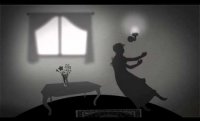The judges for the 2013 National Book Awards were announced today. For the first time since the 1970s, the judges in each category will include not only writers, but also literary professionals such as editors, professors, and booksellers, in an attempt to broaden the reach of one of the country's most prestigious literary prizes.
The judges in poetry include Nikky Finney, whose collection Head Off & Split won the 2011 National Book Award; Ada Limón, whose debut collection, Lucky Wreck, won the 2005 Autumn House Poetry Prize; D. A. Powell, who won the 2013 National Book Critics Circle Award for his collection Useless Landscape: A Guide for Boys; Jahan Ramazani, a professor at the University of Virginia whose book Poetry of Mourning: The Modern Elegy from Hardy to Heaney, was a finalist for the National Book Critics Circle Award; and Craig Morgan Teicher, the poetry reviews editor for Publishes Weekly whose collection Brenda Is in the Room and Other Poems won the 2007 Colorado Prize for Poetry.
The judges in fiction include Charles Baxter, who was a finalist for the National Book Award in 2000 for The Feast of Love; Gish Jen, the author of four novels and a collection of stories, and an American Academy of Arts and Sciences Fellow; Charles McGrath, the former editor of the New York Times Book Review and former deputy editor at the New Yorker; Rick Simonson, who has been a bookseller at Elliott Bay Book Company in Seattle, Washington, for over thirty-five years; and René Steinke, a 2005 National Book Award finalist for her novel Holy Skirts, and director of the MFA program at Fairleigh Dickinson University.
The judges in nonfiction include Jabari Asim, the author of The N Word and What Obama Means, a former book reviewer for the Washington Post, and an associate professor at Emerson College; André Bernard, vice president and secretary of the John Simon Guggenheim Memorial Foundation; M. G. Lord, author of The Accidental Feminist, Forever Barbie, and Astro Turf, for which she received an Alfred P. Sloan Foundation grant; Lauren Redniss, a finalist for National Book Award in 2011 for Radioactive: Marie & Pierre Curie, A Tale of Love and Fallout; and Eric Sundquist, author and chair of the English Department at Johns Hopkins University.
“The expansion of the judging pool has given us an extraordinary diversity of voices on our panels,” said Harold Augenbraum, the executive director of the National Book Foundation, which sponsors the annual awards. “We expect spirited discussions throughout the process.”
The judges for this year’s awards will be the first group in the history of the prizes to select a long list of ten titles in each of the four categories, to be announced on September 12. Twenty finalists from the long list will be announced on October 16, and the winners in each category will be announced at the sixty-fourth annual National Book Awards ceremony in New York City on November 20.
Louise Erdrich took the 2012 award in fiction; David Ferry won in poetry, and Katherine Boo won in nonfiction.
The National Book Awards have been given annually since 1950 for books published in the current award year. Submissions for the 2013 prizes open today. Using the new online submission system, publishers may submit books published between December 1, 2012, and November 30, 2013, until June 3. Visit the website for complete submission guidelines.








